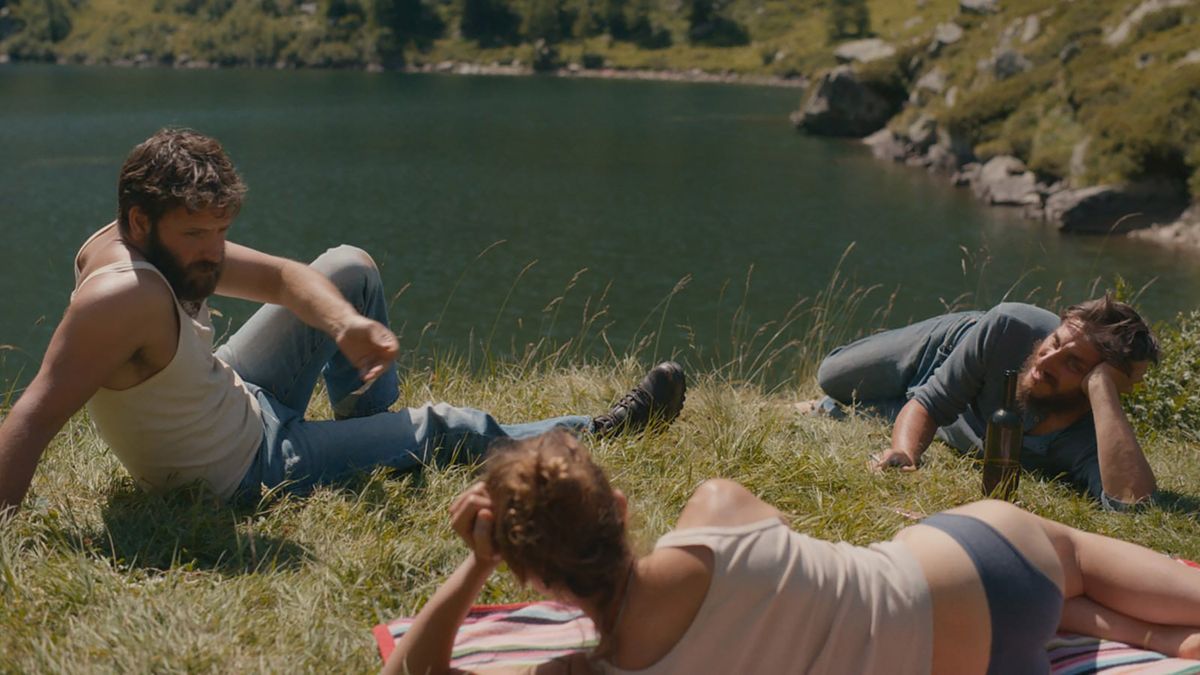Movie Review: ‘The Eight Mountains’ a story of friendship with deep roots

At the beginning of “The Eight Mountains,” the stunningly beautiful and deeply affecting adaptation of the award-winning novel by Paolo Cognetti, our narrator Pietro (Luca Marinelli) describes a unique kind of friendship, one that has offered him “a place to put down roots.” Roots and rootlessness are at the core of this simple, yet complex tale, one that drives at the very heart of existence, our connection to others and to the world around us. This French/Italian/Belgian co-production is written and directed by the Belgian husband and wife filmmaking team of Felix van Groeningen (“Broken Circle Breakdown,” “Beautiful Boy”) and Charlotte Vandermeersch, who delicately balance the earthiness, effervescence and emotional highs and lows of this story.
“The Eight Mountains” is the story of a childhood friendship of convenience that evolves into a lifelong relationship between a pair of platonic soul mates, grown in the rocky soil of the Italian Alps. It’s a bond crystallized in the water of icy alpine lakes, buffeted by high-altitude winds, formed on the surface of a glacier. Eleven-year old Bruno (Cristiano Sassella) is “the last child in the village” of Grana, where young Pietro (Lupo Barbiero) is spending the summer with his parents, away from the noise and pollution of Turin. Where Bruno is physical, embodied, confident, Pietro is cerebral, a bookworm and an over-thinker. But they take to the land together, communicating in the way that boys do: running, jumping, wrestling, splashing.
As they grow up, the differences in their circumstances sharpen. For a moment, Bruno has the opportunity to leave the village and attend school in Turin, to live with Pietro’s family, who have taken him under their wing, offering reading lessons and hiking trips. But Bruno’s father declines the offer and his son follows in his trade, becoming a construction worker and master bricklayer. The restless Pietro, who loses touch with Bruno in his teen years, has less direction, sparring endlessly with his father (Filippo Timi) over backpacking trips, school and jobs, resentments simmering until it’s too late.
Pietro and Bruno (Alessandro Borghi) collide again as adults. Pietro’s father has left him a pile of rocks in the mountains that Bruno promised to rebuild. The pair spend a blissful summer laying the walls, brick by brick, Pietro finally yearning and learning to connect with his father, who found so much peace there, away from his engineering career in a factory, exploring the mountain ranges with Pietro, and later, with Bruno, after father and son were estranged.
“The Eight Mountains” is a film about friendship, and about fathers and sons – the resistance to and inevitability of heritage. It’s about the seductive, and healing, power of nature, though Bruno would object to referring to the elements of the natural world in such an abstract manner, as he scolds Pietro’s pals from the city.
But mountain life is not all pastoral bliss. The fantasy of living a simple, beautiful life away from civilization is intoxicating, indeed, but has the potential to become toxic, as the call to isolation in the wilderness gets louder. Bruno attempts commercial cheesemaking and domesticity but becomes stuck in his identity as a mountain man, hemmed in by the invisible borders he’s created. He becomes wilder, “part man, part animal, part tree.” Pietro, finding strength in his mountain roots, sets forth, beyond familiar topography, searching for meaning in the Himalayas, though constantly returning home, back to Bruno.
The script is wonderfully meditative and impeccably crafted, plumbing the depths of its themes through Pietro’s diaristic narration. The characters speak through gestures, silences, the profundity found between the lines. Cinematographer Ruben Impens’ camera floats weightlessly as they ascend mountains and scamper down ridges; it captures them in relationship to the sprawling alpine landscape across the seasons, regarding these peaks from up close and afar. Swedish musician Daniel Norgren’s modern folk tunes offer a sense of warmth and grounding, creating a coziness that reflects what these characters find here – not just home, but a soul connection to the earth and each other.
The chemistry between Marinelli and Borghi, expressed in glances and few words, eclipses that of their romantic relationships with women, underscoring the idea that sometimes a lifelong soul mate can be a friend. The love story that is “The Eight Mountains” expresses this ineffable relationship between those who know us best and the places in which we find ourselves with a rough-hewn grace and profound knowingness.